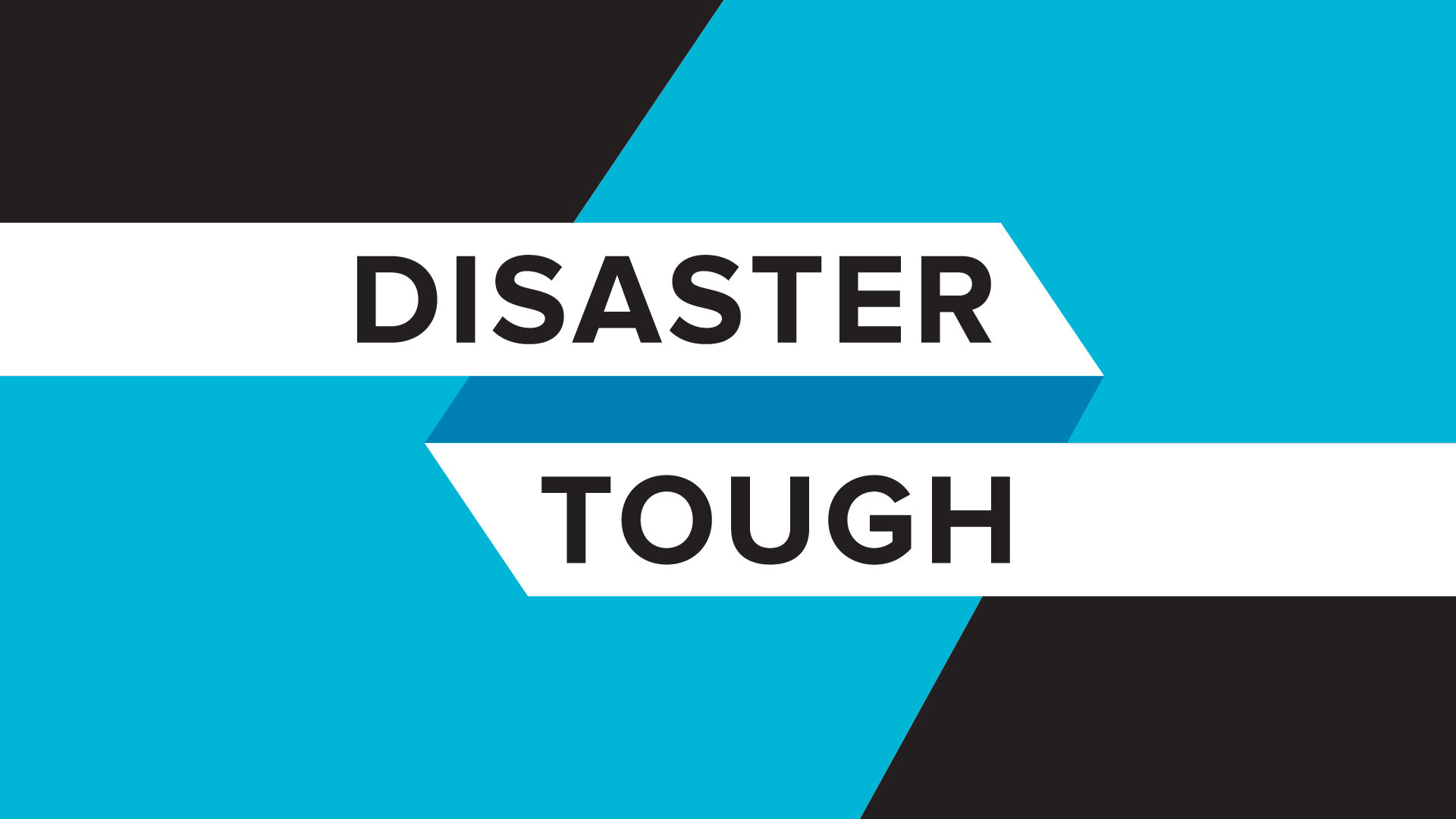
#51 The DNA of an Emergency Manager - Interview with Kevin Pigg
What does an emergency manager look like? It looks like someone who is highly trained, passionate about helping people, and able to take on the stress of emergency management. Kevin Pigg is an expert in the field and shares his experiences to help our listeners gain insight in what is required.
Kevin Pigg is an expert practitioner of emergency management, serving in roles across the Local, State, and Federal levels. Kevin shares lessons learned and personal experiences on our show in the advice style format. We talk about the challenges, tasks, and personality that is required in this field. Essentially, Kevin Pigg lays out the DNA of an emergency manager.
Kevin now serves as the Director of Emergency Management at Essel Environmental.
#50 Improving the Tempo of EM Through Data - Interview with Patrick Campion
Knowing what data can do for you is only half the battle, you also need to know how to use it for your advantage. Patrick Campion, owner of Preparedness Advisors talks learning and preparedness as a strategy.
Patrick Campion, owner of Preparedness Advisors, specializes in improving situational awareness through data science. Patrick understands first-hand the importance of emergency managers understanding and using data in their roles, both in blue sky operations and in grey sky operations. Whether your tracking grant dollars, or identifying gaps in mitigation, using data can make you more efficient and increase your success.
#49 Fire Response and Oil Spill Hazmat Incidents - Interview with Eric Helpenstell
Deepwater Horizon, Alaskan Oil Pipeline, Kuwait Oil Fires, just to name a few of the disasters that Eric Helpenstell has responded to throughout his storied career. We talk about private emergency services and management operations work and the amazing experiences Eric has had on this week’s episode.
This Spring marks 11 years since the Deepwater Horizon Oil Spill. It marks 10 years since the Tohoku Japan Earthquake, Tsunami, and Fukushima Disaster, 30 years since the Kuwait Oil Fires, 32 years (almost to the date of this episode) since the Exxon Valdez Oil Spill, and so many other major disasters that were major game changers in emergency management and disaster response.
Eric Helpenstell has been in the response, recovery, or post-recovery (mitigation phase) of many of these catastrophic disasters. He has a background of fire suppression in wildfires, involved with logistics during the Pandemic, and even worked to unify children and parents during the family separation policies of the US Boarder Crossing. Eric's experiences are extensive, his knowledge and advice is critical for the prevention of looming threats. A great reminder that training + experience + data is the right mix to become Disaster Tough.
Bonus: Eric and John talk about the Keystone XL Pipeline project, the dangers, the considerations, and the importance of working with stakeholders from Tribal Governments to the Energy Sector.
#48 Interview with United Kingdom's Chem/Bio Counter Terrorism Expert, Dr. Stephen Johnson
Emergency management, leadership, and becoming and expert with Dr. Stephen Johnson who teaches and leads CBRN Counter Terrorism activities.
Dr. Stephen Johnson and host John Scardena discuss the intersection of emergency management and chemical, biological, radiological, nuclear (CBRN) field activities. Steve provides advice on how to become an expert, talks about the differences between CBRNe and HazMat, and next steps to protect the public from these catastrophic events. We also talk about the Beirut Explosion on this week's episode.
Dr. Stephen Johnson's Current Activities
(as described from Cranfield University)
"Stephen Johnson is the Course Director for the MSc in Forensic Explosive and Explosion Investigation, which explores other hazardous incidents e.g. CBRN and Fire. He actively works with Police, Fire, OGDs and International Organizations on themes of terrorism, CBRNE, intelligence and forensic science. This has included the FCO, ICRC, London Fire Brigade, SO15 and the International Institute of Criminal Investigation. He teaches on or delivers the following courses:
Hazardous Forensics
Forensic Intelligence and Exploitation
Forensic Investigation of Explosives and Explosive Devices
Fire and Explosion Investigation
Counter IED Capability
Royal Engineer Force Protection Course
Terrorism Risk Management and Mitigation
He regularly lectures on Police CBRN courses around the UK, Imperial College London (On explosive devices), University of Rome Tor Vergata and previously at Georgetown University.
Steve's research investigates the exploitation of forensic evidence for intelligence purposes and ranges from CBRNE detection through to Open Source Intelligence. He has supported research with a wide range of British and American and International Universities. On CBRN he worked with Sussex, Bath and LSE on CBRN investigations in Syria. A significant phase of research was funded by Pool Re (The Government Terrorism Re-Insurance Pool), on modelling the impact and forecast of terrorism attacks.
Steve serves on a wide range of working groups, panels and advisory boards. He has provided comment for the media on CBRNE and terrorism.
He has currently taken a 2 year posting as the SO2 Training Policy (C-CBRN) heading up the Counter CBRN roadmap preparing the Field Army and wider Defence.
#47 Interview with Jessi Nalepa Former FEMA Director of External Affairs
It's been one year since FEMA began working on the COVID-19 response. Jessi Nalepa led the agency’s external affairs during this initial onset. We talk lessons learned, importance of messaging, political influence, and how to work with the media.
Messaging is everything. COVID-19 has shown once again how incredibly important it is for us to understand how to work with media. Whether it's collaborating with stakeholders like; CDC, FEMA, public health, and local emergency management groups; or managing and informing politicians; the handling of rumor control from the 24-hour news cycle like CNN, Fox News, CNBC and their local affiliates; and of course the onslaught of opinions on social media. Messaging impacts lives and emergency managers must understand this in order to be successful in disaster services.
Jessi spent nearly a decade in federal service. Most recently, she served as Director of External Affairs for the Federal Emergency Management Agency (FEMA). In this role, she managed the daily operations of the agency’s public affairs, strategic communications, congressional and intergovernmental affairs, as well as the Ready.gov campaign. During her tenure at FEMA, Jessi also served as the Director of Congressional Affairs where she was the agency’s principal liaison with the U.S. Congress and ensured that the agency’s priorities were reflected throughout the legislative and oversight process.
A proven crisis communications expert, Jessi effectively coordinated and led the FEMA’s external communications and engagements for over 234 Presidentially declared disasters, including the Coronavirus (COVID-19) Pandemic as well as some of the Nation’s most devastating hurricanes and wildfires.
Before her service in the executive branch, Jessi spent nearly seven years on Capitol Hill. She culminated her Capitol Hill career by serving as the Chief of Staff to U.S. Congressman Michael T. McCaul (TX-10), then Chairman of the House Committee on Homeland Security.
Jessi Nalepa's current role is the Hagerty Consulting Communications Director responsible for driving the company’s external communications strategy and brand through effective media engagement, digital communication, as well as public relations and advocacy campaigns.
#46 The Last House Standing Documentary -Interview with Director George Siegal
The Last House Standing Documentary is about how everyone needs a home that doesn't blow away, wash away, or burn down.
Emergency managers need to watch The Last House Standing Documentary. It shows in phenomenal detail how critical it is to build to our local environments and why that isn't happening now. Watch The Last House Standing Documentary at: https://www.thelasthousestanding.org/movie
Director's Statement:
As a former weatherman and reporter, I've covered countless stories about people who lost everything in natural disasters. Every year people lose their homes and many rebuild the exact same way. Most people have no idea if their insurance will actually get them whole again after a major disaster. If they have to evacuate, and their house is destroyed, many of the things that were lost can never be replaced. We roll the dice on where we live with no true sense of what the hazards really are. When you watch The Last House Standing you’ll meet people who are living the nightmare, and it doesn’t have to be this way.
This film is a wake-up call to everyone that we need to take control of our destiny and do whatever we can to protect our homes and lives.
#45 Emergency Management Analytics: Interview with Caitlin Von Stein
How does an interview about emergency management analytics become an "Angry Obama" vs "Nice President Obama" session? Caitlin Von Stein is an expert emergency management analyst who can interpret Host John Scardena's GIS rantings on this week's episode. Check it out!
Data analytics improves the life of an emergency manager. Whether it's determining where to place shelters, forecasting weather events, providing a risk assessment, or providing trustworthy situational awareness. Caitlin Von Stein is a subject matter expert in emergency management analytics. She provides the Federal Emergency Management Agency with need to know information, working on projects across the Disaster Lifecycle. She is truly Disaster Tough because she enhances the capability of emergency managers through analytics. Learn more about her experiences on our latest episode of the Disaster Tough Podcast.
Key and Peele may have inspired us with our own version of, "Angry Obama & Nice President Obama." Check it out!
#44 Mitigating Long-Term Risk in the National Capital Region: Interview with Dr. Earl Stoddard
Dr. Earl Stoddard is the Director of Montgomery County Office of Emergency Management & Homeland Security. Working in the National Capital Region has provided Dr. Stoddard the opportunity to flex his coordination capabilities and analytical skills, addressing long term risk due to climate adaptation.
The complexity of mitigation in the National Capital Region, combined with the changes caused by climate adaptation, create a perfect storm for emergency managers in Montgomery County Maryland.
Dr. Earl Stoddard is the Director of Emergency Management & Homeland Security for Montgomery County and is taking a hard look at future risk compared to historical data and has found several irregularities because of climate change. He also provides advice about working in emergency management and operations and the need to collaborate with stakeholders, especially those who may not understand the tempo of response.
**BONUS: Montgomery County, MD OEMHS is looking for a hydrologist! If you know someone who can assist, please reach out.
#43 Interview with Former FEMA Administrator Brock Long
In this special episode, Brock Long shares his thoughts on disaster readiness, how Americans should prepare for crisis, and the cluster of actions that must be taken now in disaster. Brock shares several solutions to gaps identified in the industry.
Today we dive into all things related to Brock Long's impressive career as a change agent and leader in emergency management. We talk about the complexities of a FEMA response in coordinated response, the need for disaster declaration reform, moving forward with a career in mind, and how to better prepare for disaster through mitigation. Brock speaks extensively about the mitigation process and changes that need to happen at FEMA and State governments to clear the way for communities to become Disaster Tough.
"Brock Long is the former Administrator of the Federal Emergency Management Agency (FEMA). Confirmed in June 2017 by the US Senate with strong bipartisan support (95-4), Brock served as the Nation’s principal advisor to the President responsible for coordinating the entire array of federal government resources down through 50 states, 573 tribal governments, and 16 island territories to assist them with executing disaster preparedness, mitigation, response, and recovery. Brock is the 10th Administrator and the youngest to hold the office. While serving as Administrator, Brock coordinated the federal government’s response to over 144 Presidentially declared disasters and 112 wildfires, including three of the Nation’s most devastating hurricanes and five of the worst wildfires ever experienced. During this time, nearly $44 billion of disaster activity occurred under the various federal recovery programs.
"As the FEMA Administrator, Brock led two major initiatives which will have long-lasting impacts on the emergency management community. He rapidly transformed the agency’s business enterprise by implementing innovative Community Lifeline and FEMA Integration Team concepts to strengthen public-private partnerships and permanently embed full-time staff within the offices of state and tribal governments to better meet constituent needs. Further, as the result of effective advocacy and eight influential Congressional testimonies, Congress passed the Disaster Recovery Reform Act and made pre-disaster mitigation a national priority, provided meaningful changes to the FEMA workforce, and bolstered state and local emergency management capability.
"From 2008-2011, Brock served as Director of Alabama’s Emergency Management Agency (AEMA) under Governor Bob Riley. As Director, he served as the State Coordinating Officer for 14 disasters, including eight presidentially-declared events. Brock also served as an on-scene State Incident Commander for the Alabama Unified Command during the Deepwater Horizon oil spill.
"He is a graduate of the prestigious Executive Leadership Program offered by the US Naval Postgraduate School/Center for Homeland Defense and Security. He attended Appalachian State University where he graduated with a Bachelor of Science degree and a Master of Public Administration." - Hagerty Consulting website; Brock Long Bio.
#42 Risk Management: Responding to Threat - Interview with William Jackson
Should emergency managers receive firearms training as part of their job? William Jackson, "Jack," is an emergency manager who specialized in risk management. He talks pros and cons of Emergency management and gun carry. Jack is the Lead Instructor for Gladiator Gunz Training Group.
Emergency managers are faced with natural and man-made threats every day. Because the Department of Homeland Security just raised the threat level of domestic terrorism, we brought on expert William Jackson Jr., to talk to us about risk management, protection, training, and purpose.
We discuss several scenarios including mitigating riots, active shooter, general law enforcement activities, personal protection, targets, firearm training, even hunting on this episode. It's all things guns related with the Lead Instructor from Gladiator Gunz Training Group.
#41 2021 Domestic Terrorism, USAR Perspective- Joe Hernandez Returns For Another Interview!
Joe Hernandez is an Urban Search and Rescue (USAR), subject matter expert. Having deployed to several large-scale crime scenes himself, including the Oklahoma City Bombing, he has particular understanding of how responders need to address threats of domestic terrorism.
Domestic Terrorism, fueled by extremist groups, are a major concern for emergency and disaster services in 2021, especially due to the events caused at the United States Capitol Building on January 6th and the federal response coordination surrounding the events of President Joe Biden's Presidential Inauguration. Clearly the threat of violence was strong enough to cause swift reaction by law enforcement and military groups.
Whether it's a peaceful protest, turned riot, or indications of a national security threat... emergency managers and first responders must understand the complexities of response to keep all involved safe.
Joe Hernandez is an Urban Search and Rescue (USAR), subject matter expert. Calling on his experiences to events such as the Oklahoma City Bombing, he is able to walk us through the preparations that responding parties must consider. This week we address terrorism as a way to reduce the threat of occurrence and impact to life, property, and continuity of operations.
#40 FDNY Firefighter in New York City OEM: Interview with Emergency Response Expert- Doug Bainton
Doug Bainton is a Firefighter with FDNY. A firefighter veteran , Disaster Assistance Response Team (DART) member with numerous catastrophic disaster deployments, and current New York City Interagency Coordinator at the New York City Office of Emergency Management (NYC OEM) talks to us about his career experiences and shares the importance of tactical and strategic level missions.
Emergency managers and first responders have close coordination, but their roles and responsibilities are different. Doug Baiton is an expert in emergency response and can speak to the differences between the tactical level and strategic levels of our field. As a New York City Firefighter, "on loan," to New York City Office of Emergency Management as a Citywide Interagency Coordinator, Doug is profoundly aware of the needs and responsibilities of responders and the complexity of resources. It's all about the survivor in this episode. Learn from Doug's amazing career here.
#39 FEMA Logistic Section Chief assigned to the White House for COVID Response, Interview with Joe Dellamura
Joe Dellamura is a disaster logistics expert and Branch Director at FEMA. He was assigned to lead a task force for the White House during the initial onset. His team tackled COVID-19 testing for labs. He also provides input on the vaccine distribution.
This episode is all about the task force assigned to tackle the logistics of the COVID-19 Pandemic testing and the Federal Emergency Management Agency (FEMA) logistics perspective. Joe Dellamura is a FEMA branch director who was assigned to work with a a task force of federal agency partners to find and innovate solutions in order to exponentially increase the supply chain of COVID-19 testing. He has recently been involved with the vaccination distribution and provides input how the distribution will work.
#38 2021 Emergency Manager Goals & Tough Calls, Interview with Todd De Voe from EM Weekly
Happy New Years! Todd De Voe from EM Weekly and I talk about goals, IEAM CEM, weapon carry, and other major topics in our field to help you think big picture. Let us know what you think on our Instagram Channel Disaster Tough Podcast
Happy New Years! Todd De Voe from the EM Weekly podcast and I discuss some goals that emergency managers need to take a look at, like how to improve your career, actions by your agency and more. We also take a tough look at big picture topics like emergency managers working with homeless populations, and the pros and cons of the IEAM certified emergency manager (CEM) process. We even talk about working with homeless populations and discuss if emergency managers should carry a weapon as part of the 5 FEMA mission areas, which include protection. Listen to our discussion and let us know on our social media channels for the Disaster Tough Podcast!
#37 Peace in No-Man's Land: How 1914 Can Impact Emergency Managers Today
The Truce of Christmas 1914 during World War I is a stark reminder to us in 2020 to find truces in order to Survive. What will be your truce?
Emergency Managers can learn from what happened at No-Man's Land during World War 1 between Dec. 23rd to Christmas day Dec. 25th, 1914. A moment of peace in a world of chaos as two armies could not cross 60 meters.
We need to find both internal truces and external ones in order to overcome the battle of disasters.
#36 The Rise of Covid And Your Value
We are 11 months into this fight... We are tired... but we shouldn't quit! You have incredible worth and this difficult moment will pass. Good days are ahead for emergency managers.
Emergency managers, healthcare workers, first responders, humanitarians... we are tired and it's okay to note that. Take a moment to breathe because we need to keep fighting. If you're having a difficult time right now during the Holiday Season- reach out we have resources to assist- don't let this one moment define your life, we will get through this!
#35 Santa and Space Weather with Jason Clap
Understanding Space Weather will help you as an emergency manager, especially as Santa and Rudolph track their way around the Globe. Jason Clapp returns to the show to talk about the complexities of electro magnetic pulse (EMP), communication systems, and critical infrastructure.
Santa is coming to town! We are experiencing Space Weather via the Northern Lights as we record this episode. Jason Clapp is back on the show to discuss this recurring phenomenon and how it impacts preparedness. We talk about it from emergency planning and response to military and commercial impacts as well.
Emergency managers must include space weather in their emergency planning process. It impacts communications, critical infrastructure, commercial travel, and of course Santa with Rudolph's GPS tracker in his nose. Or is it a lightbulb?? Who knows- join us this week as we talk about the complexities of how the Sun and man-made electromagnetic pulses (EMP) impact disaster toughness.
#34 Interview with the FEMA National IMAT Red Operations Chief Tim Britt
The Federal Emergency Management Agency (FEMA) National Incident Management Assistance Team-Red (National-IMAT Red) is part of the National Strike Team. Tim Britt leads operations for Presidentially Declared Disasters. Tim talks about strategic and tactical response, leadership, and work ethic in this week’s episode.
Tim Britt, Ops Chief on the National Strike Team, housed within FEMA's National Incident Management Assistance Team Red, talks about response in 2020, lessons learned throughout his own career, and provides advice on leadership in emergency management.
Tim's experiences include service in the US. Marines, police officer, CalOES emergency manager, and now the federal government. Tim has worked at every level of emergency response and can provide great insight because of his background.
#33 The Pilgrims
The Year 1620 teaches us a lot about how we need to act in 2020. Using the Pilgrims' experience, we are reminded of several important emergency management principles.
Between the Supreme Court ruling siding with religious groups and economic pain, we have a lot to be reminded of from our 'Pilgrim Fathers.' They faced disease, death, food scarcity, and religious persecutions... but they made it through. The Mayflower Compact and the emergency response collaboration had a major part to do with that. John Scardena, our host, talks lessons learned and how they can be applied in today's world. Here's a hint: More gratitude.
#32 The Motivational AAR, Interview with Patrick McGinn from The Salvation Army
After action reports (AAR) are critical in the emergency management pursuit to achieve excellence in disaster response. Using the 2020 Pandemic Wildfire Response as a framework, Patrick McGinn discusses personal, professional, and team after actions to help emergency managers learn and improve in the field.
Due to the pandemic, the 2020 Wildfires provided unique challenges to response organizations. During these fires, Patrick McGinn oversaw the feeding program to survivors in behalf of The Salvation Army. The Salvation Army is a critical VOAD member that works with the CalOES during large-scale disasters. Working with several partners, Patrick coordinated food delivery to 160 hotels. This provided him with great insight into the complexity of disaster response and will be able apply these lessons learned for the future. In this after action report (AAR) style episode, Patrick and our host, John Scardena, talk about individual and career growth, strengthening emergency management organizations, and the importance of coordination between all response groups.













































